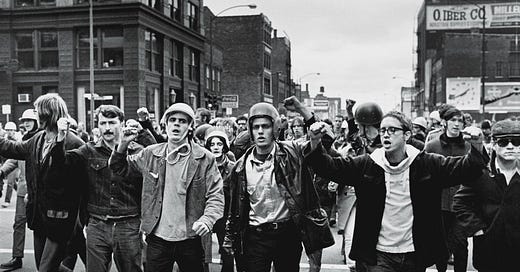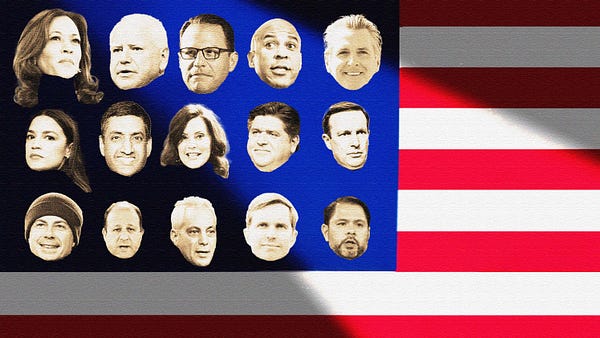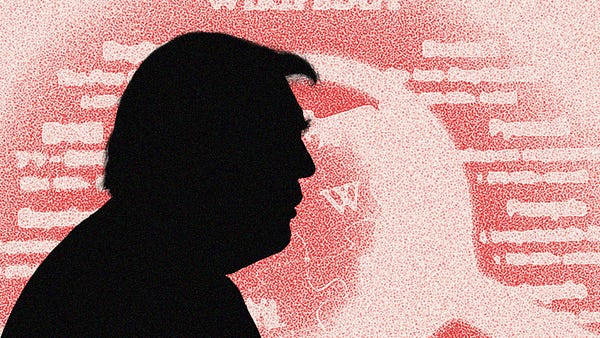
Last year, American universities exploded with protests over a war half a world away in Gaza. In solidarity with the perpetrators of October 7, keffiyeh-clad students covered campus grounds with “encampments,” took over buildings, waved the flags of terrorists, and menaced Jewish classmates.
As fall semesters begin this week, some major universities—from NYU to UCLA—have implemented new rules to protect Jewish students from the protesters who declared sections of campus no-go zones for “Zionists,” which often just meant Jews.
Nonetheless, the chaos appears to be returning.
A week ago, at Temple University, protesters marched in solidarity with Palestinian “resistance against their colonizers.” As students returned to class at the University of Pittsburgh, a man attacked a group of Jewish students with a bottle. Meanwhile, at the University of Michigan, four protesters were arrested during a “die-in.”
“The longer the war in Gaza, the longer the unrest in the Middle East continues, the greater the fertile ground for an escalation or expansion of protests,” Bruce Hoffman, a scholar at the Council on Foreign Relations and expert on domestic terrorism, told The Free Press. Hoffman believes serious violence is not out of the question, if campus encampments are dismantled and protesters become convinced they are the victims of an oppressive state bent on usurping their rights.
History teaches that a few true believers can do plenty of damage once they decide that boycotts and sit-ins aren’t making a difference. It’s therefore worth considering a worst-case scenario, in which a vanguard decides demonstrations are not enough. That’s what happened in the late 1960s when a small band of radicals moved from protest to violent resistance. They were known as the Weathermen, and like today’s student protesters, they emerged from the Ivy League and other elite universities.
Between 1969 and 1974, this small gang of violent, far-left intellectuals bombed Congress, police stations, courthouses, and the Pentagon. They changed their identities to avoid detection, dyed their hair, and lived off-grid, while working to destroy the “imperialist” country they detested. The Weathermen were motivated by their disgust with the Vietnam War, a war their generation was conscripted to fight. In their eyes, this great crime made the nation irredeemable.
America needed a second revolution, by any means necessary.
The leaders of the Weathermen, also known as the Weather Underground, did not rise from poverty or want. Most came from good families and attended the best schools: Columbia, Cornell, Michigan, the University of Chicago. In fact, the Weathermen are mocked in Radical Chic, Tom Wolfe’s iconic send-up of elites besotted with radicals who want to destroy the social order they sit atop.
These leaders included Mark Rudd, the star of Columbia’s student uprising in 1968, and his classmate John Jacobs, an amphetamine-addicted theorist of revolution known as J.J. Beside them were Bill Ayers, a scruffy organizer and saboteur, who grew up in a well-heeled Chicago family, and his future wife, Bernardine Dohrn, a former cheerleader with a law degree who was the driving force behind the group.
Indeed, it was Dohrn who made the evening news with Walter Cronkite with a recorded message announcing the group’s 1970 fall offensive, in which she claimed responsibility for destruction across the nation. “Now we are everywhere,” she said. “And next week, families and tribes will attack the enemy around the country. We are not just attacking targets. We are bringing a pitiful, helpless giant to its knees.”
She issued a warning to President Nixon and members of his administration: “Come to the high schools and campuses, but guard your planes. Guard your colleges. Guard your children. Guard your doors.”
Listen to her message, and you’ll hear the sound of an American nightmare.












